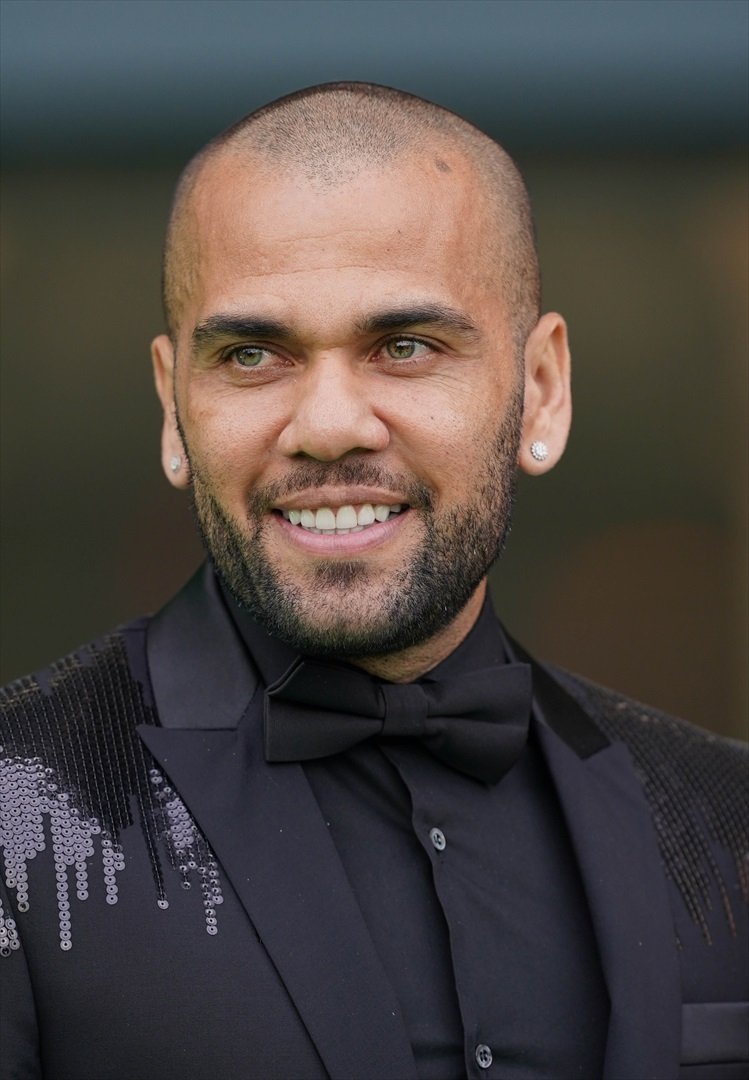An hour. That's how long the hearing at the Barcelona Audience took this Friday morning, to discuss, once again, whether Dani Alves should be provisionally released or should remain in preventive detention until the date of his trial, accused of sexual assault on a woman at the Sutton nightclub in Barcelona. The Brazilian footballer's lawyer, Cristóbal Martell, affirms that if he is released he will not take flight because he "wants to defend himself" as he maintains that he has solid evidence that the sexual relations were consensual, according to legal sources.
On the other hand, Ester Garcia, lawyer for the victim, affirmed that the flight risk remains, since he has a high financial capacity, and one obvious demonstration, she says, is the claim that his children are to come and live in Barcelona, a family project that she has described as "fictitious ". The prosecutor has also requested that the former Barça star continue in prison, where he has been behind bars since January 20th, since the victim's account "is forceful and without spurious motives". It is expected that the section of the Barcelona Audience concerned with the case will decide in a week whether Alves should continue in prison or not.

Flight risk
This second hearing at the Barcelona Audience was again held behind closed doors to protect the victim's identity, and only one media photograph was permitted at the beginning. It is the same court that in February rejected the release of Dani Alves because it affirmed that the risk of him evading justice remained, given the evidence incriminating him for a serious crime, which could carry a sentence of 12 years in prison, and the fact that he has the financial capacity to flee to Brazil - with whom Spain has no extradition agreement - or to a similar country. These arguments were presented again by the public prosecutor as well as the private prosecution in the case. Judge Carme Guil will once again be the spokesperson judge.
At issue: social roots in Catalonia
Among the defence's arguments, lawyer Cristóbal Martell asked the three judges to re-analyze the social roots of Dani Alves, who has dual Spanish and Brazilian nationality. "Dani Alves feels like he's from Barcelona", said the lawyer, according to judicial sources, recalling that since leaving FC Barcelona the first time and playing for clubs in Turin and Paris, he has always returned to Barcelona on holiday, where he owns a house. The company that manages his assets is also based in Barcelona, which the defence says is clear evidence that his roots are here and not in Brazil.
It has also been reported that the two children of the Brazilian footballer are to come and live in Barcelona. The private prosecution, however, questioned this information since it asserts that the children have been registered as Barcelona residents since May, but have not yet come to the city.
The unreal divorce
And with regard to the assertion written in an earlier ruling by a district court judge in Barcelona that Dani Alves had no strong roots in Barcelona because his wife, Joana Sanz, had asked for a divorce, defence lawyer Martell had a sarcastic comment: "He was on the wrong channel", she said, a reference to television watching habits, since no check had been made on the truth of the information or whether a divorce request had been filed, and the defence has shown that none was.
Expert report on the victim
One of the arguments made by the prosecution is that the investigation of the case against Dani Alves is almost over and in a few months the trial will be held. Among the aspects remaining to be carried out is the matter of the expert psychological report on the victim, in which an expert from the prosecution will finally also be able to take part, jointly, as allowed by the Barcelona Audience. The judge has decided that she can be asked about her condition and the consequences, but not about the events of that night in the Barcelona club.
The complainant has always maintained that the sexual relations were non-consensual. The fingerprint evidence of Alves and woman which was found in the small bathroom where the assault was alleged to have taken place is interpreted in opposite ways by the two sides.

